Yes, brown decor can be chic – here’s why it’s overtaking grey
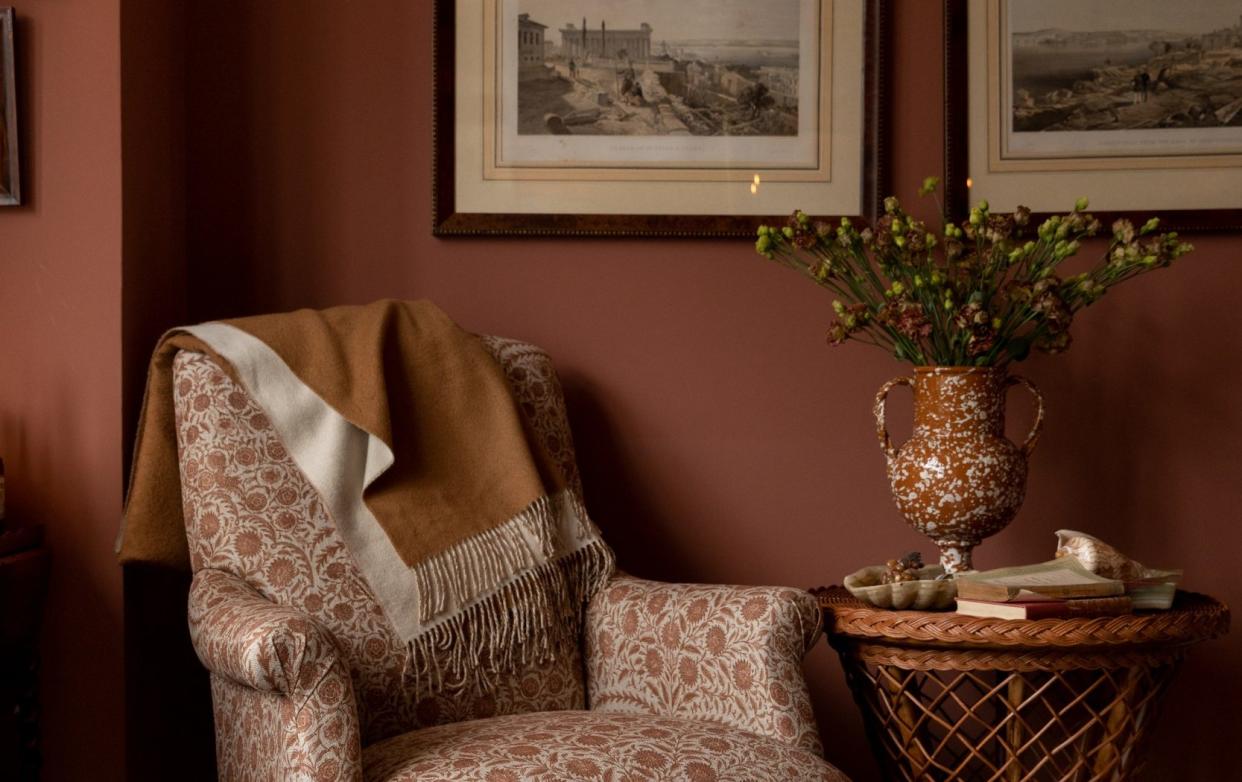
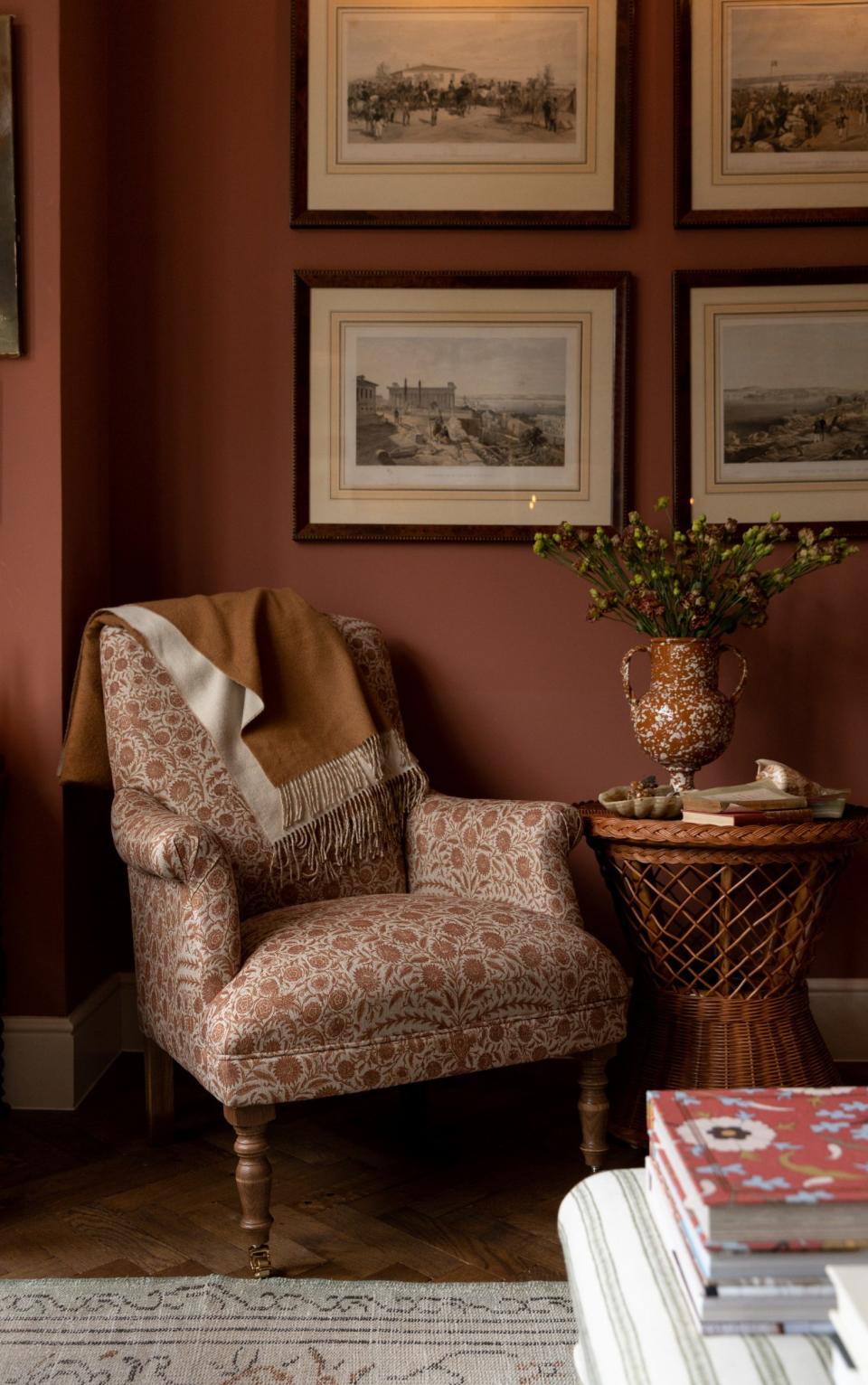
I have always gravitated towards the colour brown. I remember vividly moving into my first flat after university, convincing the landlord to let me paint my bedroom a Dulux tone called something coffee-related, like Mocha or Latte, much to my parents’ chagrin. They reacted negatively – like many people do – to the idea of brown walls, worried it would make the room feel smaller, darker and just a bit, well, yuck. I did it anyway (of course) and loved that room endlessly. To me it felt expensive and calm, like a warm, welcoming respite from the outside world.
A couple of decades later and brown is bigger than ever, eclipsing grey as the background-du-jour. My obsession with the colour has grown, to the point where I now make my own brown rattan furniture and brown terracotta ceramics, and collect brown antiques.
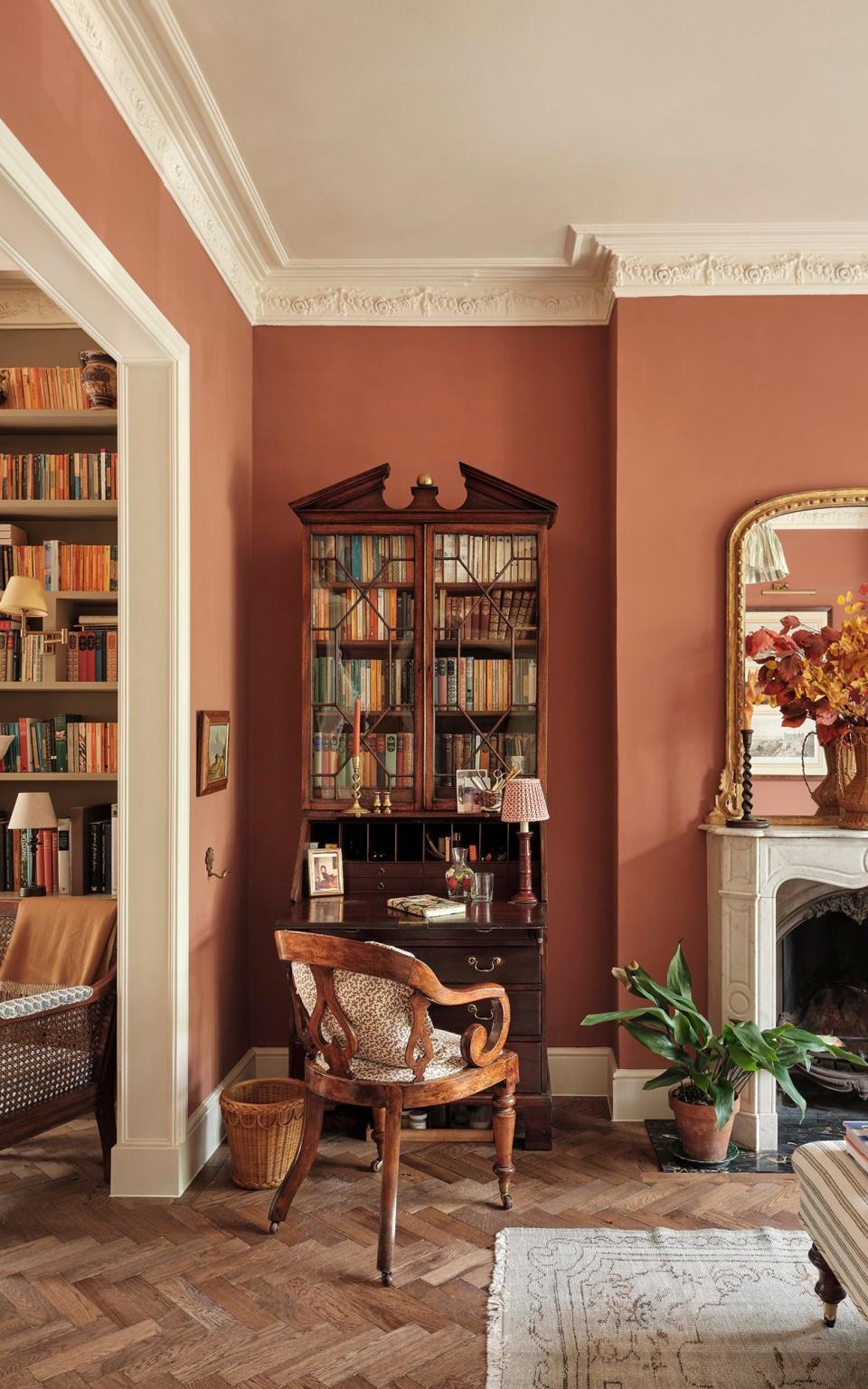
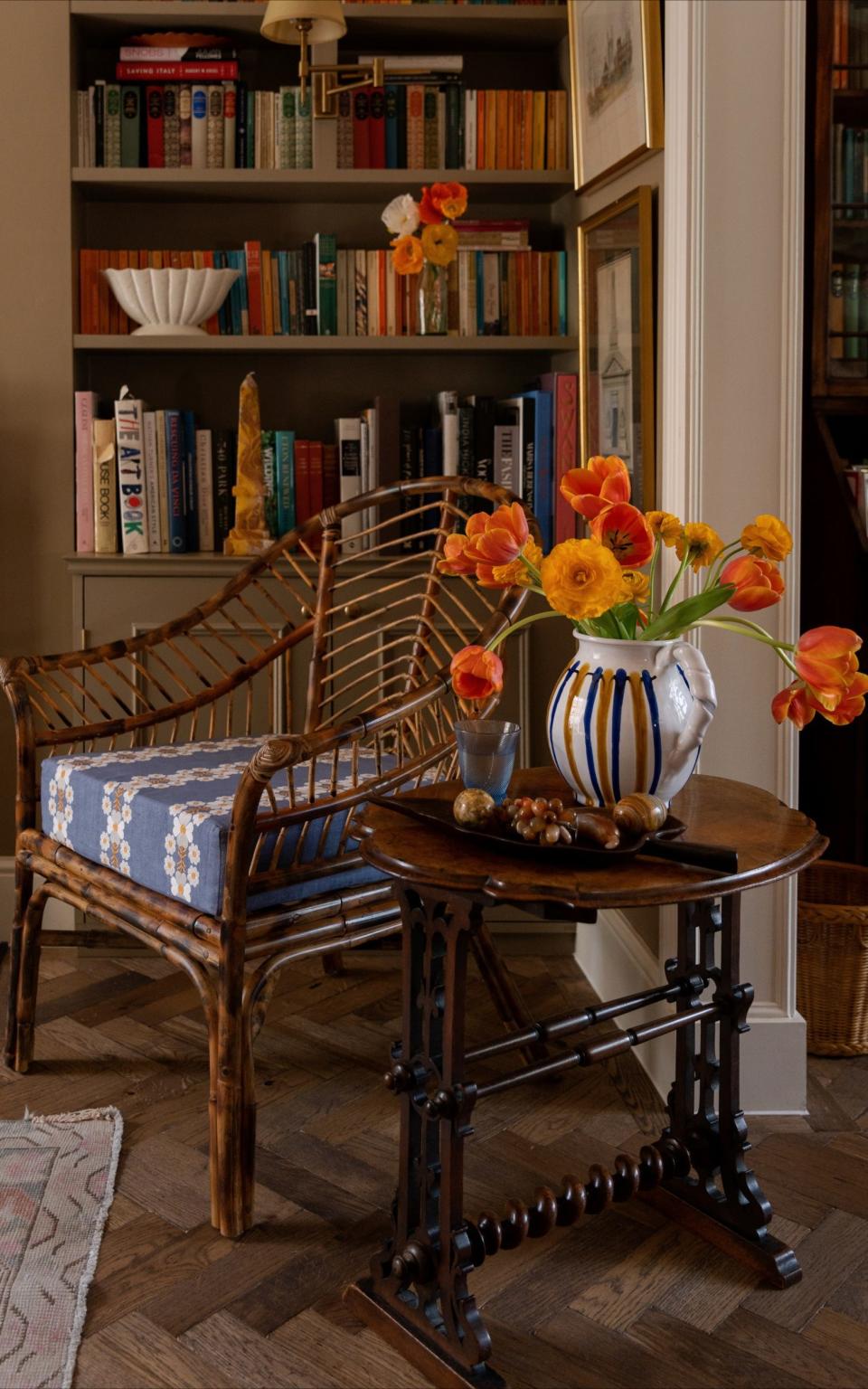
Looking back at some of the most iconic interior designers, many used brown to infuse elegance and character into a room, but in incredibly different ways. Renzo Mongiardino, the Milanese set designer and architect, layered contrasting tones and textures of brown inside Rudolf Nureyev’s Paris apartment: the drawing room walls for example, were made from hand-painted, embossed leather. The effect was flamboyant and decadent. The American designer Albert Hadley, on the other hand, had a more trim aesthetic – he regularly used brown in his upholstery, or as a chocolate gloss on the wall, peppered with touches of gold, red, or black. His rooms were bold, but calm.
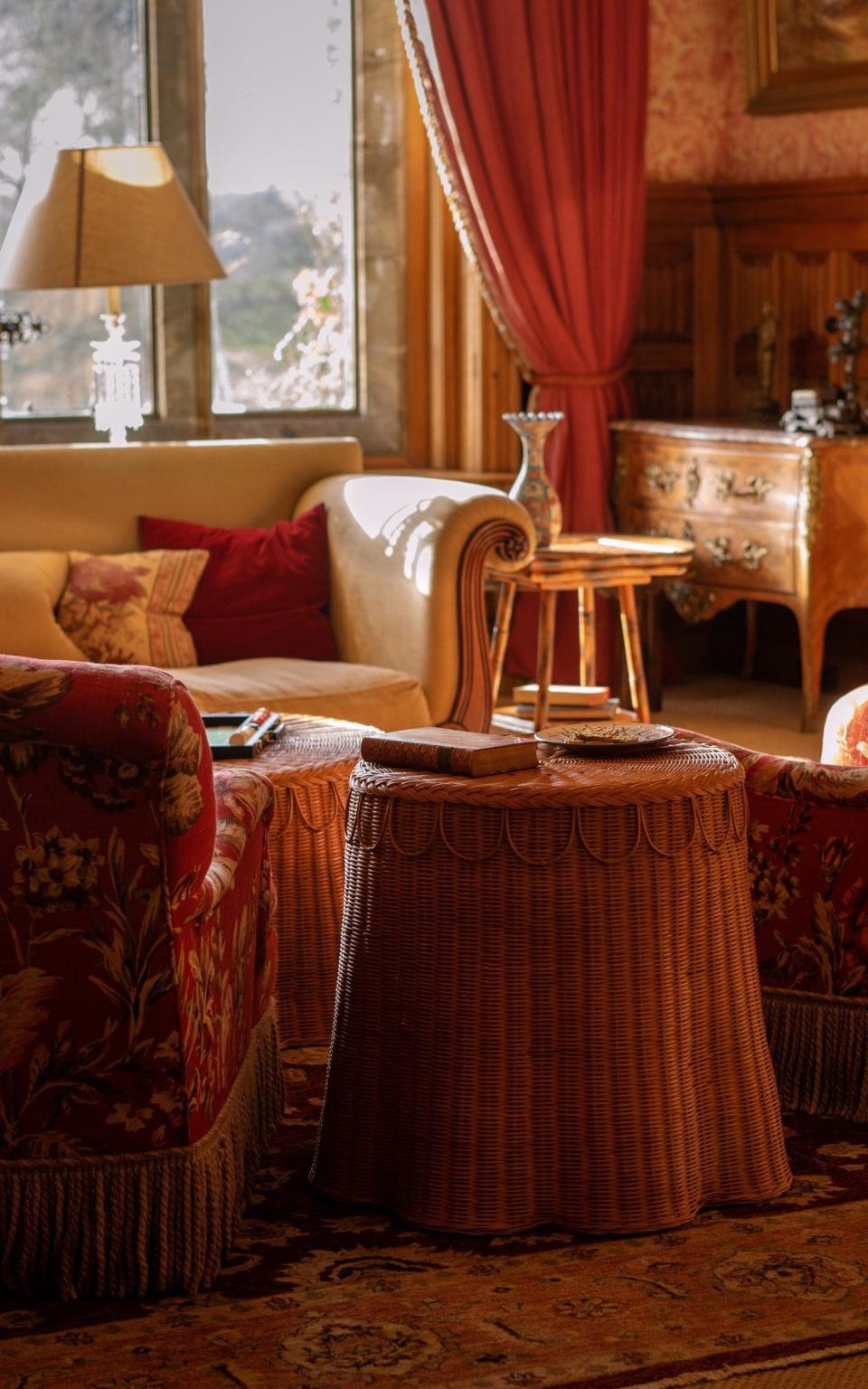
Another huge influence on my love of brown is the American interior designer Rose Tarlow. Her much-photographed home in Provence is a lesson in rustic refinement. Huge pieces of dark brown antique furniture, collected over decades, are paired harmoniously next to crisp linen chairs, open stone fireplaces and books. Her hallmark is uncluttered, and the juxtaposition of brown wood – from all different eras – is truly exquisite.
The point is, brown can be played with in a myriad of ways, to create a look you love. “I find it wonderfully versatile,” says interior designer Samuel Villiers. “Brown, for me, is one of those colours that I’m always excited when a client gets on board with. It can be strangely divisive and I can never quite understand why. From calming caramels to unctuous umbers through to cocooning chocolate tones – I love its grounding quality. I also love how brown is a conduit for other colours – it’s not just brown!”
The psychology of colour merits brown’s ability to ground and nurture; something we all crave from home, perhaps more now than ever. Designer Kirsten Blazek (aka @a1000xbetter) sings the praises of brown’s “healing powers”. So much so, her recent project saw an entire house featuring the hue in every room. She decked the mid-century kitchen in brown from head to toe, from the wooden accessories and bronze-brown tiles to the wood-panelled fridge-freezer. The vibe was distinctly 1970s, yet not in an old-fashioned, drab way. The new way of embracing retro is much sleeker and cooler.
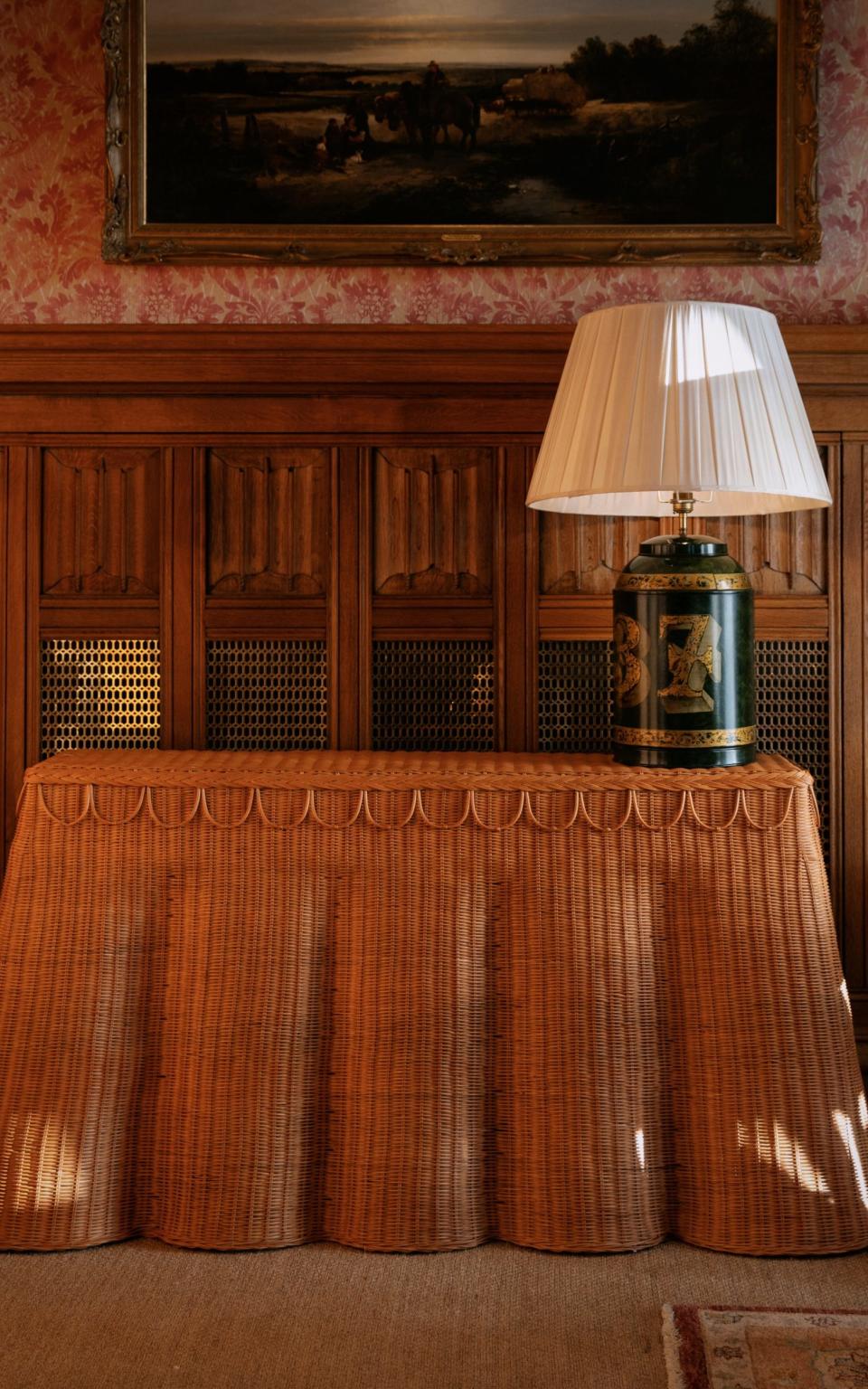
So, where to start at home? If you’re going to paint your walls, then go the whole hog. “Don’t do half measures,” advises interior designer Benji Lewis. “This is a time for all walls or nothing – an accent wall will look undecided.”
We painted our living room – including the in-built bookshelves – in Mummy by Edward Bulmer. It’s a soft taupey-brown that changes atmosphere as the sun sets. Other gentle browns I’d recommend to begin with include Toasted Teacake by Graham & Brown and Mouse’s Back by Farrow & Ball. Lewis recalls his first love affair with brown walls, however, and it was a more dramatic, glossy effect that caught his eye. “Years ago, my walk home was through The Boltons in south-west London and a home I passed every morning and evening had dining room walls that were seemingly finished in polished brown lacquer with a red and gold chinoiserie design painted on top. I wasn’t being overly nosey, the huge sash windows afforded bystanders a fantastic view into the space! I was beguiled, especially at night, when the owners turned on the table lamps and lit candles; the room was magical, unforgettable.”
For a darker, moodier tone, try London Brown no.287 from Mylands, a rich chocolate with burnt sienna undertones, or Tanner’s Brown from Farrow & Ball, which makes an impact in smaller spaces such as a powder room.
Brown shades work seamlessly as a backdrop, so you can’t really go wrong combining them with other colours. “Use accent colours like scarlet, kingfisher or even ivory with mocha coffee; it’s extraordinary how dramatic simple white looks in a dark room,” says Lewis.
If you’d rather just dip a toe into the idea, try a piece of brown furniture instead – which could be patinated wood, old worn leather, or, a real favourite of mine for a lighter touch, rattan. The soft curves of rattan bring charm and informality to a room.
Upholstery is also a lovely way to infuse tones of tobacco or chocolate to a room. In fact, I am obsessed with Mark Sikes’ new checked Frannie Windowpane fabric for Schumacher, with its butterscotch backdrop and caramel stripes. Imagine that draping the window frames – which you could paint Spanish Brown by Little Greene Paint & Paper – another delicious colour.
Louise Roe’s homeware collection can be found at sharland-england.com
Brown paints to try...
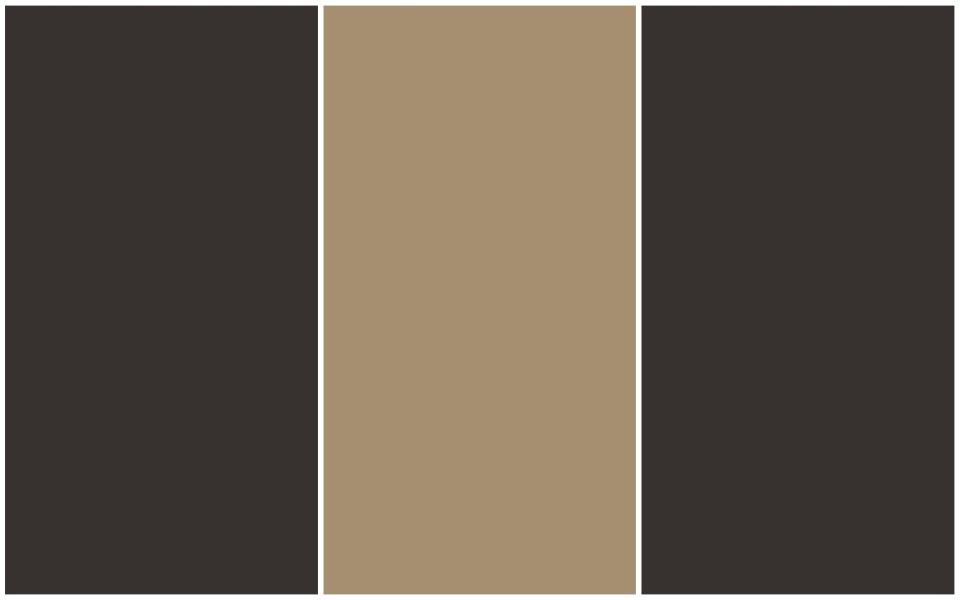
Tanner’s Brown, from £57.50 for 2.5 litres, Farrow & Ball; Toasted Teacake, from £50 for 2.5 litres, Graham & Brown; London Brown no.287, from £83 for 2.5 litres, Mylands
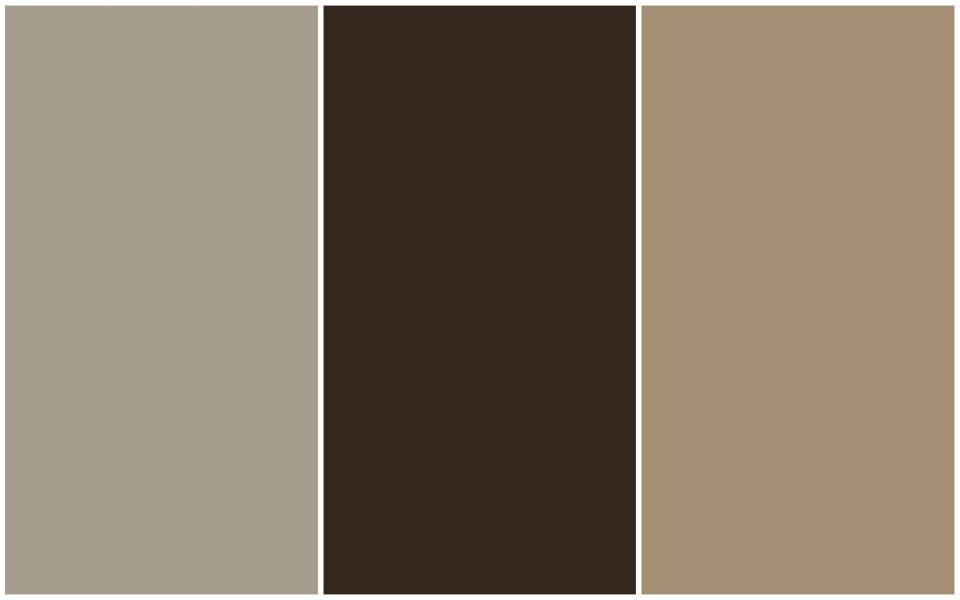
Mouse’s Back, from £57.50 for 2.5 litres, Farrow & Ball; Spanish Brown, from £57.50 for 2.5 litres, Little Greene; Mummy, from £60 for 2.5 litres, Edward Bulmer
Get the look: chic brown homeware
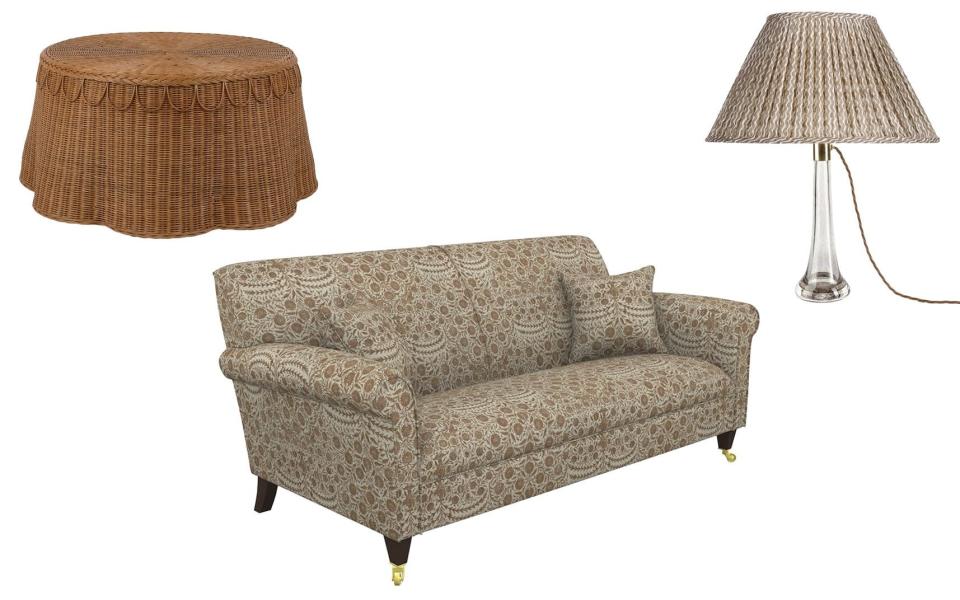
Adeline coffee table, £1,695, Sharland England; Petworth sofa in V&A Threads of India Mughal Arbour (flame), £3,164, Sofas & Stuff; Nut Brown Popple lampshade, £135, Fermoie
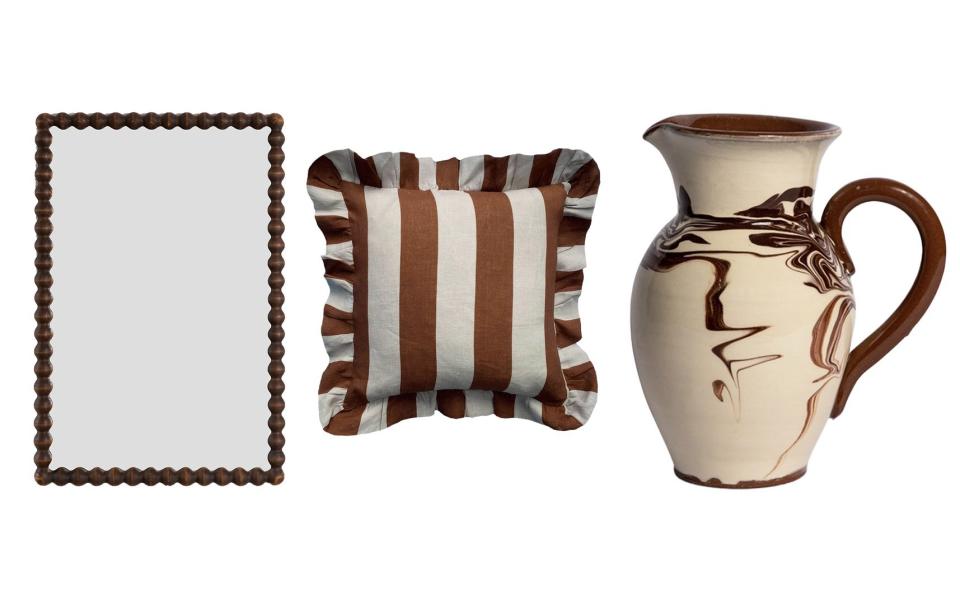
Brown bobbin mirror in dark oak, £265, Alfred Newall; Cinnamon & Oyster cushion cover by Amuse La Bouche, £75, Maison Flaneur; Marbre brown jug, £95, Sharland England

